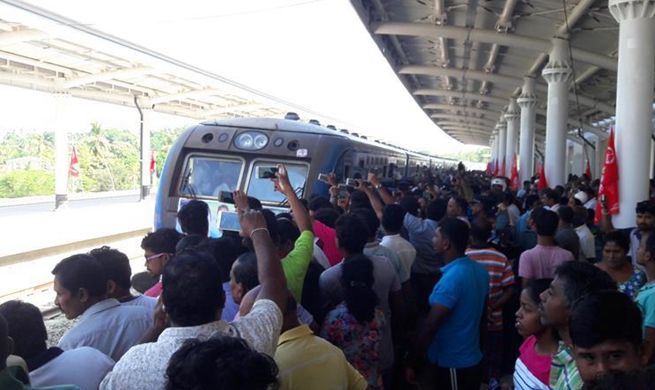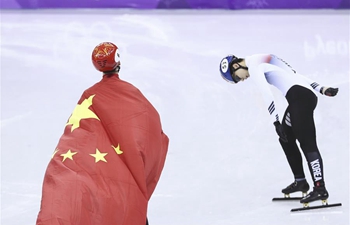SYDNEY, Jan. 8 (Xinhua) -- An Australian-led team of researchers and their collaborators around the world is helping achieving the World Health Organization's target of reducing anaemia in women by 2025.
Launched on Tuesday, new trials on 6,000 women and children in Malawi and Bangladesh have been announced by Australia's Walter and Eliza Hall Institute to tackle the problem of iron deficiency.
Working alongside the University of Melbourne, the University of Malawi, the International Centre for Diarrhoeal Diseases Research in Bangladesh and with financial support from the Bill & Melinda Gates Foundation, the team not only plans to administer iron treatments for mothers and their babies but they also aim to measure what effect the supplement has on brain development and growth rates.
According to research leader Dr. Sant-Rayn Pasricha, although the positive impacts of iron on brain development and physical growth have been widely assumed for decades, there is still no existing data to support the theory.
"With the help of trained psychologists, we will gather evidence on the impact of iron on cognitive development, behaviour and physical growth measures such as height and weight," he said.
"In addition to brain development, the studies will assess the associated risks of iron intervention in children in poorer communities, such as increased susceptibility to diseases that thrive on iron in the blood, including malaria and some bacterial infections such as salmonella and E. coli."
With hundreds of millions of mothers and their babies in the developing world at serious risk of life-threatening health problems due to anaemia, the illness is considered one of the globe's most avoidable causes of death.
While current oral treatments do exist, Pasricha said "the level of diligence required to keep up a full course of iron pills, limited access to medical centers and poor health infrastructure means an overwhelming number of pregnant women aren't getting the iron they need."
In order to combat this, researchers will test an intravenous treatment which can lift iron levels in the body in just one 15-minute procedure.
"In addition to the life-saving benefits for mothers, previous studies have shown that successful iron interventions increased gestation periods by half a week, almost halved the incidence of prematurity, and improved birth weights by 150 grams," Pasricha said.
"We hope to provide a rationale for the prudent allocation of government funds and resources, as well as improvements for administering iron through public health programs worldwide."













